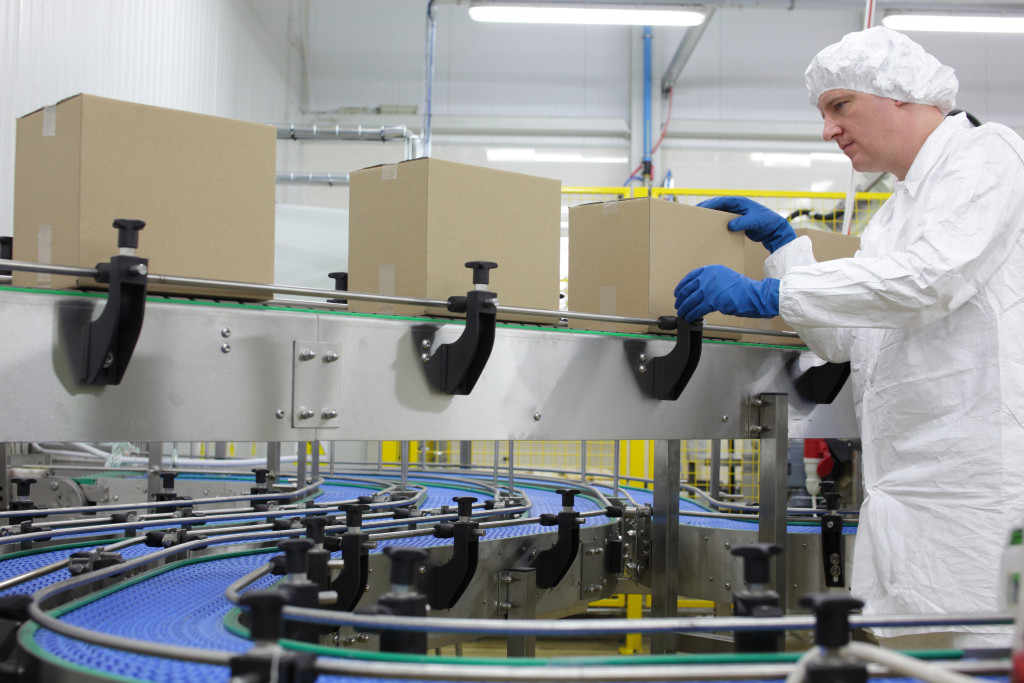A warehouse is a large and often complex structure, typically used to store goods or materials. Your warehouse must be equipped with the right tools and machinery to make the most of its space and ensure that your employees can work safely and efficiently. This blog post will provide you with a comprehensive list of must-have warehouse equipment to ensure that your business has everything it needs to run smoothly.
Some essential pieces of equipment for any warehouse include:
1. Forklifts
Forklifts are perhaps the essential piece of equipment for any warehouse. They are used to move heavy goods and materials around the warehouse and can be very useful for loading and unloading vehicles. There are many types of forklifts available on the market, so choosing the right one is important.
You may also want to consider investing in a few electric forklifts as they are much quieter than their petrol or diesel counterparts and emit no fumes, making them ideal for use in enclosed spaces.
2. Warehouse Racking
Without proper warehouse racking, it would be impossible to store and efficiently retrieve items. There are many types of warehouse racking, each of which has its own unique set of benefits. Some of the most popular types of warehouse racking include:
Pallet racks: Pallet racks are the most common type of warehouse racking. They are designed to store pallets, which are large and heavy platforms used to transport goods.
Cantilever racks: Cantilever racks are designed for storing long, bulky items such as lumber, pipes, and tubing.
Drive-in racks: Drive-in racks are high-density storage systems that allow forklifts to drive directly into the rack to store or retrieve items.
Push-back racks: Push-back racks are similar to drive-in racks, but they allow for a higher density of storage.
3. Conveyor Belts
Conveyor belts are used to move goods and materials from one point to another within the warehouse. They can be very helpful for moving large or heavy items that would be difficult to transport using manual labor. With minimal manpower, conveyor belts can automate the movement of goods throughout the warehouse, which can help to improve efficiency and productivity.
Different types of conveyor belts are available, such as powered roller conveyors, belt conveyors, and gravity conveyors. Each type has its own advantages and disadvantages, so choose the one that best suits your warehouse.

4. Vehicle Scales
Vehicle scales are used to weigh vehicles, typically trucks that carry goods or materials. They are essential for ensuring that the truck’s weight is within the legal limit and that the load is evenly distributed.
It is important to choose a vehicle scale that is durable and accurate. You may also want to consider investing in portable vehicle scales, as they can be moved from one location to another as needed.
5. Packing Equipment
If you want your warehouse to operate smoothly, you need to have the right packing equipment. This includes everything from packing tables and chairs to packaging supplies like tape and bubble wrap.
Ensure you have enough packing supplies on hand so your employees can quickly and easily pack orders. You should also have a system for organizing and storing packing materials, so they’re easy to find and use.
6. Warehouse Management System
A warehouse management system (WMS) is a software application that helps you manage your warehouse operations. It can track inventory levels, manage orders and shipments, and optimize stock locations.
A WMS can help you improve efficiency and accuracy in your warehouse. It can also help to reduce costs by automating tasks and reducing the need for manual labor.
7. Security Systems
Security is an important concern in any warehouse. You need to make sure that your goods and materials are safe from theft and damage. There are many different types of security systems that you can use, such as CCTV cameras, intruder alarms, and access control systems.
Choose the security system that best suits your needs and budget. You may also want to consider hiring security guards to patrol your warehouse and deter potential criminals. This is especially important if you store high-value items in your warehouse. So even if your security system fails, you’ll still have someone on hand to protect your goods.
There you go! These are just some of the essential pieces of warehouse equipment that you need to have. Investing in high-quality equipment will help improve your warehouse’s efficiency and productivity. You’ll be able to get the most out of your space and ensure that your operations are running smoothly. So, don’t wait any longer; start shopping for the right warehouse equipment today!
